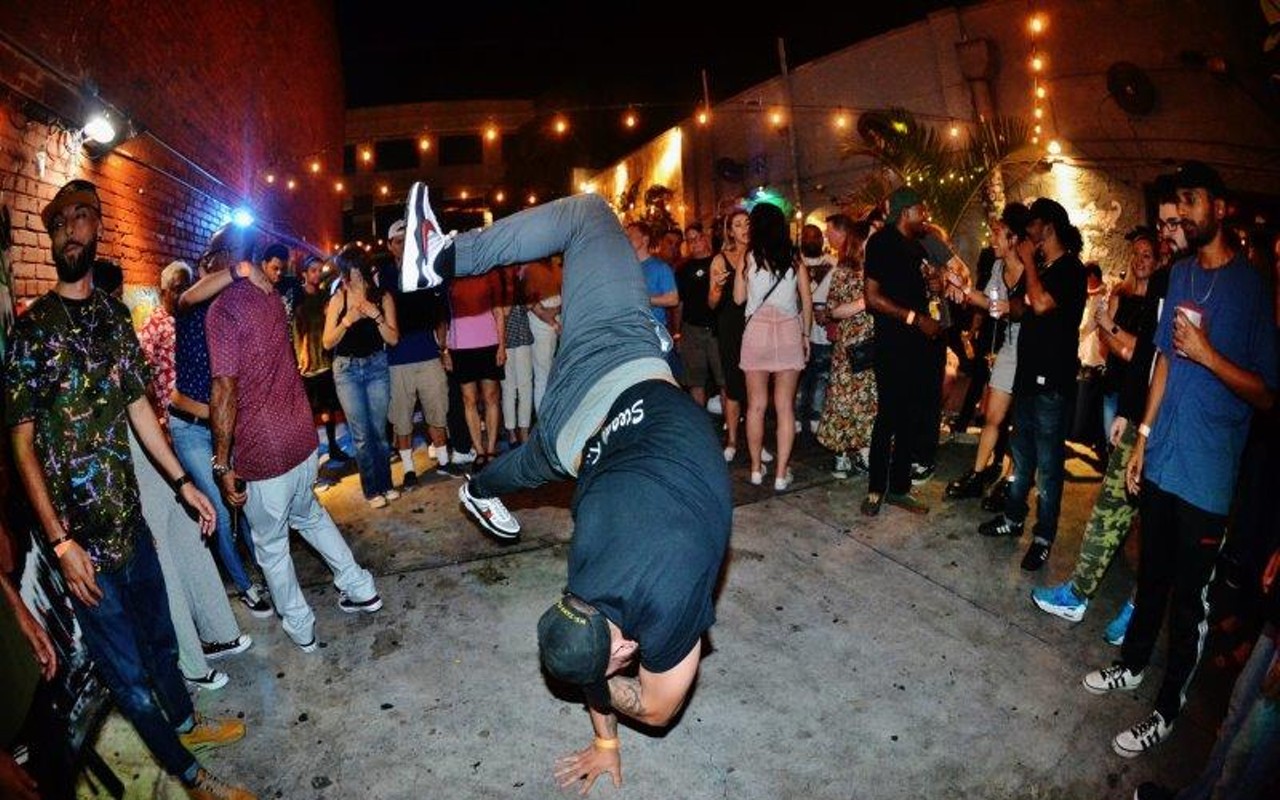After uproar from Ybor City residents and business owners about new noise ordinance amendments, several people showed up to yesterday's city council meeting to speak against the changes.
Despite outcry from the community, and a lawyer pointing out "unconstitutional" aspects of the amendments, city council passed the controversial ordinance 5-1. Only Guido Maniscalco voted no; Luis Viera was absent.
The changes won't take effect for six months. In the meantime, council called on city staff to address the most controversial aspects of the new rules and discuss them at a workshop on April 28.
If no changes are made before implementation, the ordinance could ban all amplified sound in Ybor after midnight and allow the police to fine businesses with no warning should they have outdoor music at certain decibel levels. It also restricts decibel levels to conversational volume between 1 a.m.-3 a.m., which is often prime time business hours in Ybor.
"I believe this is the fifth decade that I've been able to talk to the Tampa City Council about First Amendment issues," Lirot said to council during the meeting. "And I want to stress that that's exactly what this is for my clients and business operators in Ybor City."
Lirot explained that music is what his clients in Ybor present as a form of expression and communication, and therefore is protected under the First Amendment. Any attempt to silence that form of expression, as the ordinance aims to, would violate the constitution for that reason, Lirot said.
"It's completely unconstitutional as it stands right now," Lirot told Creative Loafing Tampa Bay today. "But I think the city can be more surgical in the way this ordinance exists, and I look forward to working with them on that."
Lirot sent CL a list of Florida Supreme Court (FSC) cases that ruled against local noise ordinances because of their unconstitutionality. He said that he also sent it to the city as well.
In Sarasota in 2012, the Florida Supreme Court ruled against a city noise ordinance that aimed to ban drivers from playing loud music in their cars, calling it "unconstitutional."
Also in 2012, the FSC struck down a state law that regulate music playing at loud volumes from cars because it violates the first amendment.
In 1996, a noise ordinance in Lee County was shot down by the FSC for the same reason.
Lirot said that he understands that there needs to be a balance, but the ordinance is not the way to achieve the goal of regulating noise, saying that the entire original ordinance is flawed.
With 10 seconds left in his speech to council, Lirot said, "I'll simply say 'Let's all get together and fix this before something's adopted that will bring on nothing but headaches and litigation.'"
The city has not yet responded to questions about Lirot's claims. This post will be updated if a response comes in.
During the presentation of the ordinance, Carole Post, administrator of development and economic opportunity for the city said that the city was aware of the "debate and discussion" leading up to the meeting.
"The council actually initiated this almost two years ago to update what we believe is a tangle of rules and regulations that have become confusing, and if not really kept pace with the needs of our evolving city," Post said. "The goal that the council set forth was to simplify and provide consistency and predictability for all businesses and residents, but we recognize it's a sensitive issue."
Business owners from Ybor spoke about how the ordinance rules would destroy the culture they've helped build there.
Belle Amoroso, who has owned the Las Vegas Tattoo company for the past 20 years with her husband. They moved to Ybor from Las Vegas specifically for its nightlife.
"We love it and the tourists love coming here," Amoroso said. "If you start altering that, you're going to end up with something quite pathetic actually."
While most business owners focused on their bottom line, Eric Schiller, who has owned Gaspar's Grotto with his wife for 18 years, talked about how Tampa taxpayers could be affected by such an ordinance.
"If that [outdoor sound] is curtailed, it will have a disastrous effect on our tourism, our hospitality on a hotel room nights on our convention business in particular," he said.
In contrast to the large turnout against the ordinance, a couple Tampeños spoke in favor of the new rules that will affect Ybor, saying that the noise there disrupted their lives, and several more complained about separate noise issues in South Tampa. But specifically in reference to Ybor, Lirot pointed out that anyone who came to Ybor (known for its nightlife for over 40 years) and is now complaining, is participating in "coming to the nuisance."
According to tort law, if the issue that's being complained about was happening before the complainants who own homes or live in the area impacted by the nuisance (noise), and if the owners were aware of the nuisance-creating activity at the time they purchased the property, the defendant may invoke the defense of coming to the nuisance.
Several business owners and residents pointed out that people should not have moved into a party district only to complain, inadvertently referencing the law.
Tom DeGeorge, spokesman for the Ybor Merchants Association and owner of Crowbar, which he opened in 2006, says that he was especially shocked by officer Brett Owen of the Tampa Police Department pushing to remove the warning for loud noise, because business owners there have tried to work with TPD to address problems there.
He also said that while this ordinance being passed felt discouraging, those who have helped make Ybor what it is over the years aren't backing down easily.
"I'm not happy with the way the city treats the small businesses here as adversarial, we should be working together to figure out a solution," DeGeorge said. "We're gonna fight the ordinance, because it's faulty in the first place."



